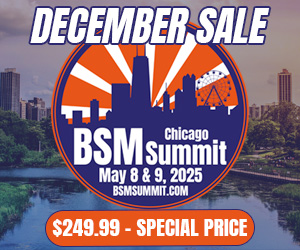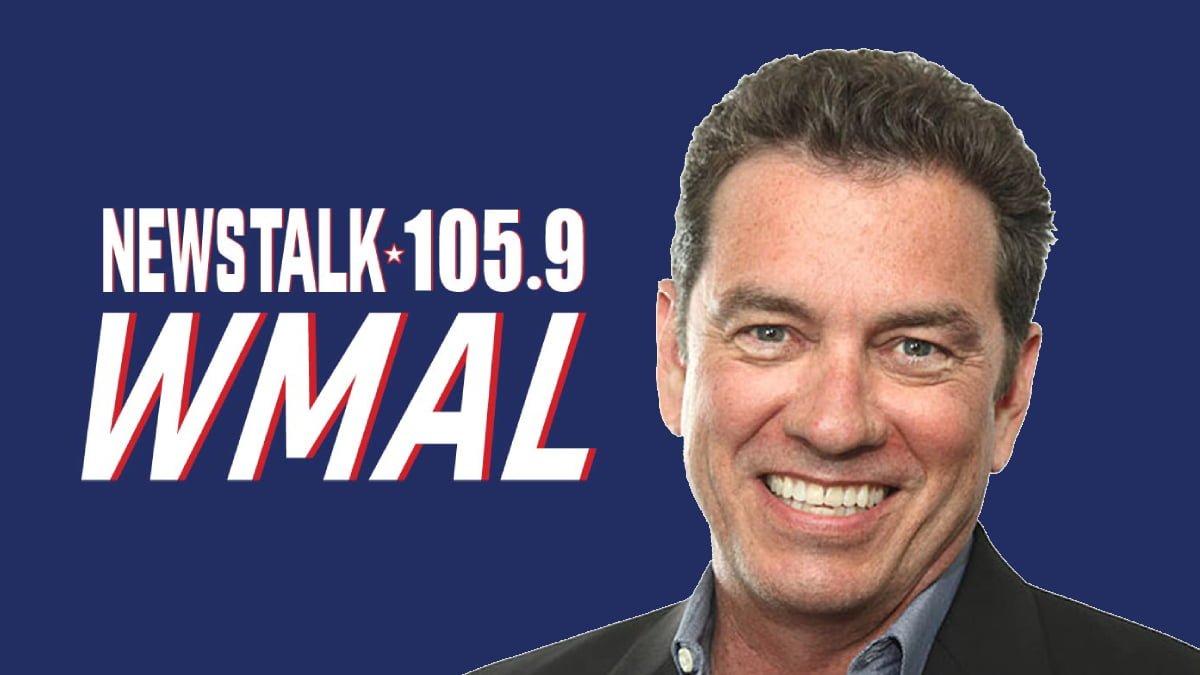When you think about the markets that set the tone and establish the trends for sports radio, Virginia Beach probably doesn’t leap to the front of your mind. Last year though, Keith Barton changed that, at least temporarily.
In today’s Meet the Market Managers column, presented by Point-to-Point Marketing, Barton explains how the idea came to him to sell the naming rights to his station. ESPN Radio 94.1 became Priority Auto Sports Radio 94.1. The move raised plenty of eyebrows.
In addition to that one move, we also cover the opportunities for both programming and recruiting in a military market, how Virginia Beach is different from other beach markets, and why he makes a point to send Christmas cards to the people everyone else curses on the interstate.
Demetri Ravanos: We have to start with a Priority Auto Deal. Plenty of stations name a studio or hotline after a sponsor, but take me through, from the idea phase to the completion of the deal. How did renaming the whole station come about?
Keith Barton: We had flipped a financial talker, WGH AM, to Fox Sports earlier this year. When I got here 25 years ago, that station was The Score 1310. It was our only sports station at the time. So I was toying with the idea of let’s go back to The Score 1310. There’s some heritage in this market still, and people remember it – some of them anyways. So we started batting that around.
One day on my back deck, I was having a cigar and a bourbon and I was thinking, ‘You know, Why wouldn’t we do station naming rights like FedEx Field does and any of the major venues do?”. So I batted that around with some of the folks here in the office, and we couldn’t see any negatives to it.
Then it was, “Well, who would we approach?” and Priority Auto kind of was a no-brainer. They have been a great client in the past. They’re extremely involved in the community. They’re locally owned like we are. They have a reputation as huge supporters of local sports on all levels. We had about four or five meetings with those folks and the rest is history.
DR: I’m sure GMs in other markets have reached out with their questions about the deal and how it works for you. Given what you have to say about Priority Auto and their close ties to the local sports scene, is there any general information or general advice you can give, or does the fit have to be so specific for the conversation to even begin in your mind?
KB: I don’t think it does. Just look at the various different businesses that are involved with venue naming rights. Even in our market, we’ve got a credit union, there’s food vendors. It’s endless.
We’re heavily involved with Old Dominion University here and Priority is a big supporter of ODU. We broadcast their games. Priority has really stepped up with supporting the school in their stadiums. They’re in the process right now of upgrading and updating the baseball stadium. It’ll allow ODU to host bigger tournaments here locally.
I’ve had others call and ask do we have any concerns. The biggest concern was how would the listeners perceive this. It didn’t take but a few text messages and a few emails from listeners once we made the change for them to realize the content didn’t change. It was just the name. Advertisers were the same. We really haven’t missed a beat. It’s been a great partnership so far.
DR: So I do have to ask: ESPN Radio is a network that has been a bit turbulent over the last three years. Was that a factor in the decision to rebrand?
KB: Yeah, it certainly made it a little bit easier. I think they’re certainly not done. We’re hearing rumors of even more things happening. If there’s been one constant with ESPN over the last, my gosh, probably ten years now at least, it’s change.
The folks up there, they’ve been very cooperative. I wouldn’t say they were 100% supportive of the decision, but, it is what it is.
DR: You guys are connected to Old Dominion. In college sports, that isn’t a power conference team. You’ve got the Tides. That’s Triple-A baseball. I would imagine there are things that the station can do or is given access to from those partners that larger sports brands would be a lot more protective of or at least not so easy to work with on.
KB: Yeah, absolutely. We broadcast the football, women’s and men’s basketball, and baseball as well for ODU. You know, it’s just been a great partnership with them for over 15 years now. Their program has been growing steadily. A couple of years back, they beat Virginia Tech at home. It really put them on the map.
As far as the Tides go, they’ve been fantastic to work with. We broadcast their games as well. They give us access to certain things at the park more than a major league team would ever offer us. That’s for sure.
DR: Virginia Beach is a unique market given the military presence. So how important is that local identity for the station, given that so many people are from elsewhere and bring their own sports interests and allegiances to town with them?
KB: Yeah, that’s been a challenge over the years. You know, it’s a pretty transient market. There’s a couple of hundred thousand military folks here. We have five branches represented in Hampton Roads. It’s the largest military installation in the world, and that is a challenge. That challenge also comes with a benefit because the listeners, the calls aren’t just based on one sports team or two sports teams. It really spans the nation with some of the calls and what our talent are able to comment on. It is a challenge without having a major brand here, but there’s also that benefit.
DR: Is it majority transient? People are there for three, four, or five years and then move on, or do a lot of people come and that is where they end up and they establish a new generation of Virginians? Do people come in with their allegiances from wherever and then it is their kids that care more about ODU or Tech or Virginia in the long run?
KB: That’s a great point. I’m a product of that. We moved here in ’75. My dad was Navy and so I’m a naturalized Virginian at this point.
More often than not, you find people that aren’t from here. My wife is actually one of the few born and bred here. It’s such a great community. The summers are hot and the winters aren’t super cold. It’s an attractive place to be. A lot of people come here with the military and they’ll get stationed elsewhere and then end up coming back here. So, yeah, what you suggest is definitely a factor.
DR: How active were you in seeking out those men and women whose time in the service is ending to then fill roles in your building? I would imagine there is some real question for those folks of “What do I do next?”. You’ve got to be versatile these days to work on the sales side of radio.
KB: Oh yeah. Currently, we don’t have any former military on our sales team, but four in our I.T. department. We’ve had engineers, we’ve had certainly promotions people and road crew. A lot of retired guys want to just participate in events that we host. We do run across that quite a lot.
DR: So what are you looking for these days when it comes to talent? Not just in sports, but across the whole cluster? What does somebody on the radio these days need to have a better grasp on than maybe they did four or five years ago?
KB: Well, I mean, social media certainly has played a huge role in who we look for. It’s got to be someone that’s well versed in that. We’ve got some long-term veterans on our country station in particular. These folks are very talented. They’re very smart. They’re tapped into the community, and they’ve evolved. They’re big on social media at this point. I think social media is important to building their individual brands and also our brands. We’re also getting into podcasts and all the different ways to serve our audience now.
Our bread and butter is still, and I believe always will be, terrestrial radio. It’s free and it’s accessible.
I send Christmas cards to the Virginia Department of Transportation every year because, currently, they have 950-plus projects going around the state. It causes traffic jams and, you know 92 out of 100 cars that are stuck in traffic are listening to the local broadcast radio. I like that.
DR: What is it you’re asking sellers to take to clients and potential clients? Are you selling the numbers or like with 94.1, are you wanting them to go and talk about the kind of community that Tim Donnelly creates with local listeners? Are you asking them to talk about that fact that 92 out of 100 cars stuck in that traffic jam are with broadcast radio? What are the weapons you’re arming your soldiers with as they go into battle?
KB: We rely a lot on testimonials from clients. I learned years ago that if you live by the numbers, you die by the numbers. So I don’t rely on that. It’s nice to get a kiss every now and then. You could exploit those numbers, but if that’s how you’re selling, it’ll work against you at some point.
We sell results. We don’t have cookie-cutter campaigns for our clients. We spend a lot of time with them uncovering the pain that they’re experiencing and we problem-solve.
DR: So the last thing I want to ask you, because we talk about the market as a military market and as a transient market. Not the entire market, but a good chunk of it is a beach market. So, I do wonder, does advertising change at all during the spring and summer? Does your business experience a peak and an off-season at all similar to other businesses in a beach town?
KB: You would think that and it does to an extent, but certainly not like our neighbors to the south on the Outer Banks of North Carolina. We used to have stations down there as well. Our ops manager who’s working with us now, worked at those stations. They are absolutely restricted to about four good months of selling and then it just dries up. The sidewalks roll up and they’ve got to make their nut in those four months.
Here it’s not so much. There are some seasonal clients that typically don’t spend in the winter. It’s a pretty stable flow of business here overall though. We’re not as affected by the tourist industry as you might think.

Demetri Ravanos is a columnist and features writer for Barrett Media. He is also the creator of The Sports Podcast Festival, and a previous host on the Chewing Clock and Media Noise podcasts. He occasionally fills in on stations across the Carolinas in addition to hosting Panthers and College Football podcasts. His radio resume includes stops at WAVH and WZEW in Mobile, AL, WBPT in Birmingham, AL and WBBB, WPTK and WDNC in Raleigh, NC.
You can find him on Twitter @DemetriRavanos or reach him by email at DemetriTheGreek@gmail.com.





